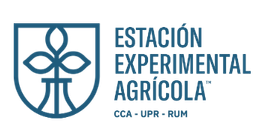En la entrevista de hoy conversamos con el doctor Héctor S. Tavárez Vargas, Catedrático Auxiliar en el Departamento de Economía Agrícola y Sociología Rural en la Estación Experimental Agrícola en Rio Piedras, adscrita al Colegio de Ciencias Agrícolas del Recinto Universitario de Mayagüez. El doctor Tavarez nos habla sobre sus estudios doctorales en el programa conjunto entre la Universidad de Idaho en Estados Unidos y el CATIE en Costa Rica, su experiencia y los proyectos que realizó y en los que se encuentra trabajando actualmente.
Economic Valuation, Land Use Change and Ecosystem Services in the Nicoya Peninsula of Costa Rica
Thesis (Ph.D., Environmental Science) — University of Idaho, 2016 | Anthropogenic land use change affects the provision of ecosystem services (ES), including water provisioning and habitat for pollinators. Understanding the value of benefits provided by forests is crucial for the design of current and future water provisioning and ES conservation policies. However, special attention should be devoted to understanding the validity of the methods widely used for the estimation of benefit-value. The first chapter of this dissertation provides an overview of the social-ecological system in the Nicoya Peninsula of Costa Rica and the rationale for the research I conducted. The second chapter of this dissertation examines the value of water for household uses, obtained from two different water-provisioning projects: well construction and reforestation. Results from contingent valuation and choice experiments methods show that residents are willing to pay a considerable amount for household water and that water generated from reforestation has a higher value than water generated from well construction. The third chapter of this dissertation examines the effects of incorporating risk as a separate attribute in choice experiments, and the effects of positive or negative framing on estimates of willingness to pay. We found that residents are willing to pay more for reforestation and additional water when information about risk is provided as a separate attribute and when risk is presented positively (e.g., probability of success vs. probability of failure) in choice experiments. The last chapter presents an interdisciplinary mixed-methods approach for using local ecological knowledge to generate practical information for the valuation of ES. We used beekeepers as a case study, as they have been working in the Nicoya Peninsula region for many years and their livelihoods are impacted by land use change. Results from a questionnaire showed that participants prefer forests for beekeeping, and rank native trees as their most important floral resources. In interviews, beekeepers reported a loss of floral resources over time, which is often due to land use changes that have been incentivized by policies at the national level. This research provides insights into resource changes from the species to landscape scale and recommendations for improving ES management and conservation policies.
Para obtener más información sobre el agroforesteria , se pueden comunicar con el dr. Héctor S. Tavárez Vargas , al siguiente correo electrónico: hector.tavarez2@upr.edu o por teléfono al (787) 767-9705, ext. 2258
Notas
–Colegio de Ciencias Agrícolas
–Departamento de Economía Agrícola y Sociología Rural
–CATIE (Centro Agronómico Tropical de Investigación y Enseñanza)
Desde la EEA es producido por la Prof. Mildred Cortes y el Prof. Luis E. Méndez
Para información sobre el podcast “Desde la EEA” comunícate con nosotros a luis.mendez4@upr.edu
Subscríbete al podcast en la siguiente dirección: http://desdelaeea.eea.uprm.edu/
Podcast: Play in new window | Download








